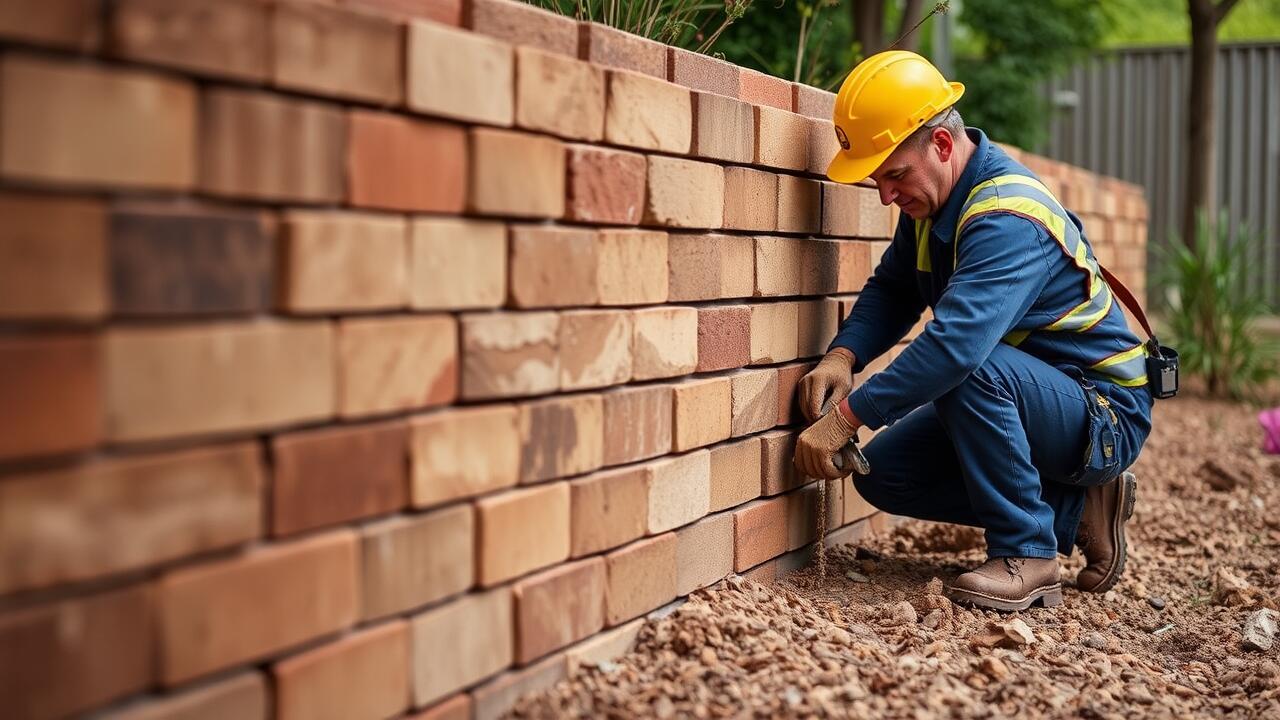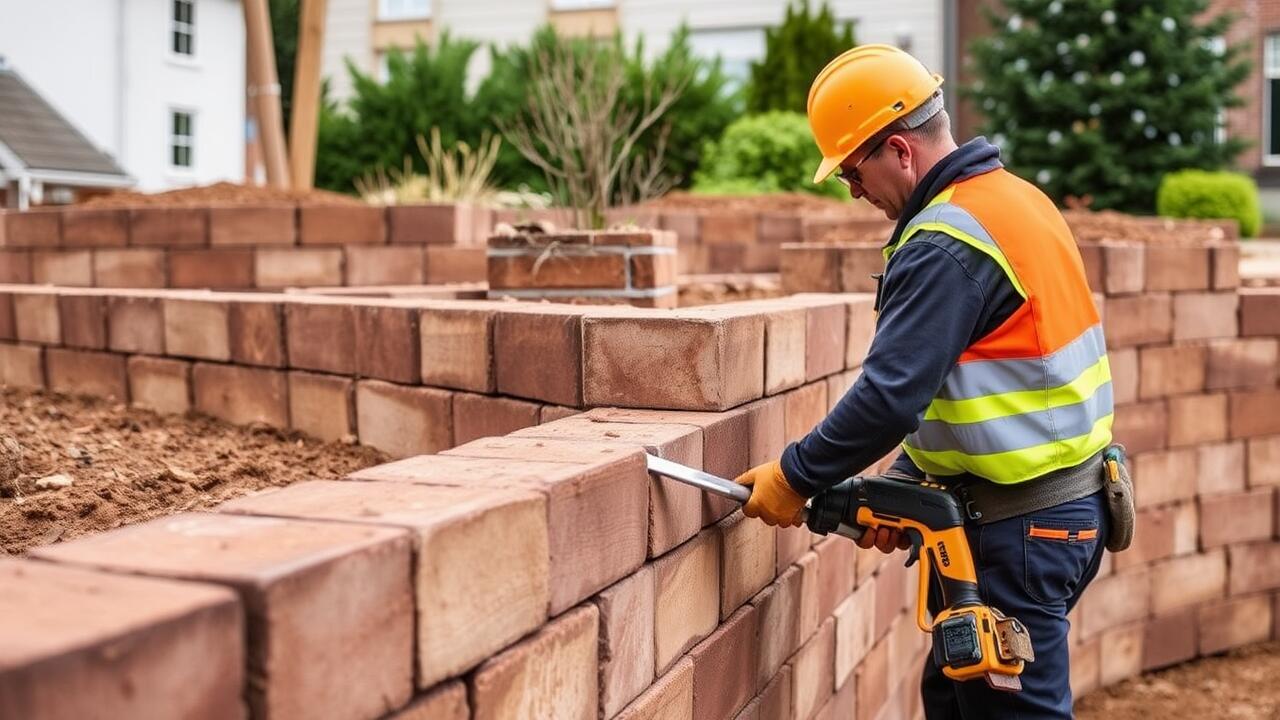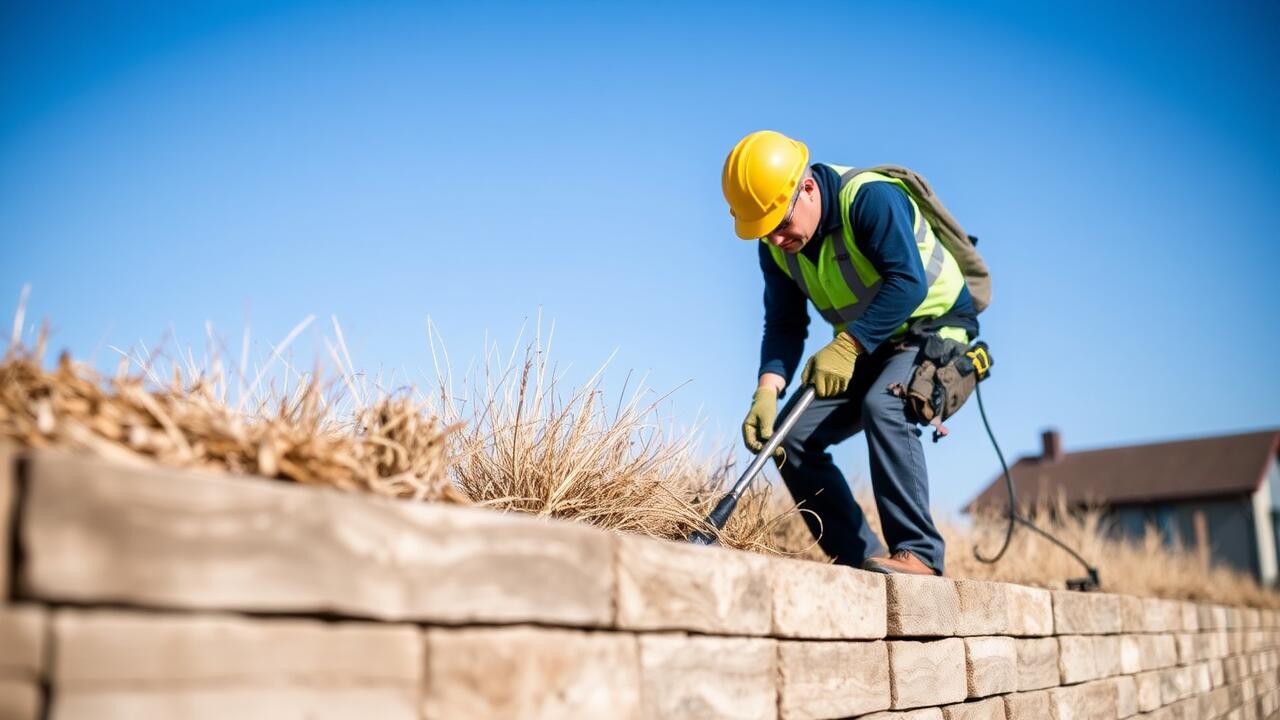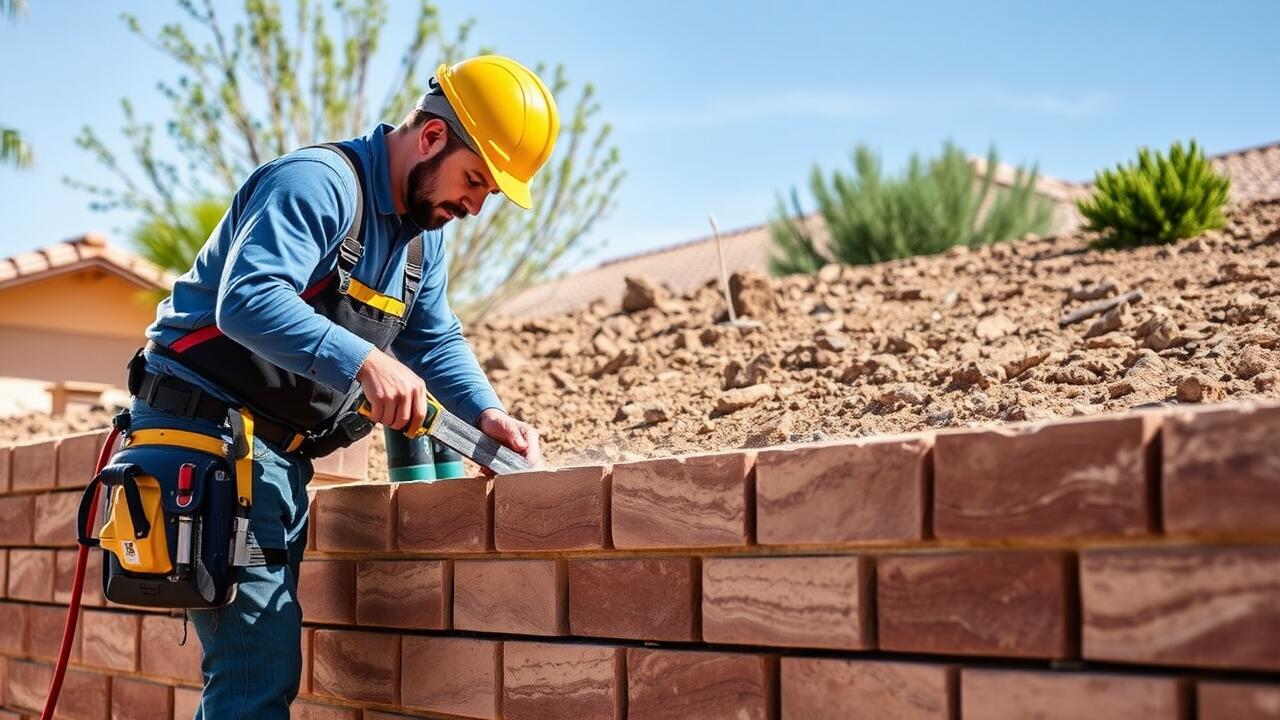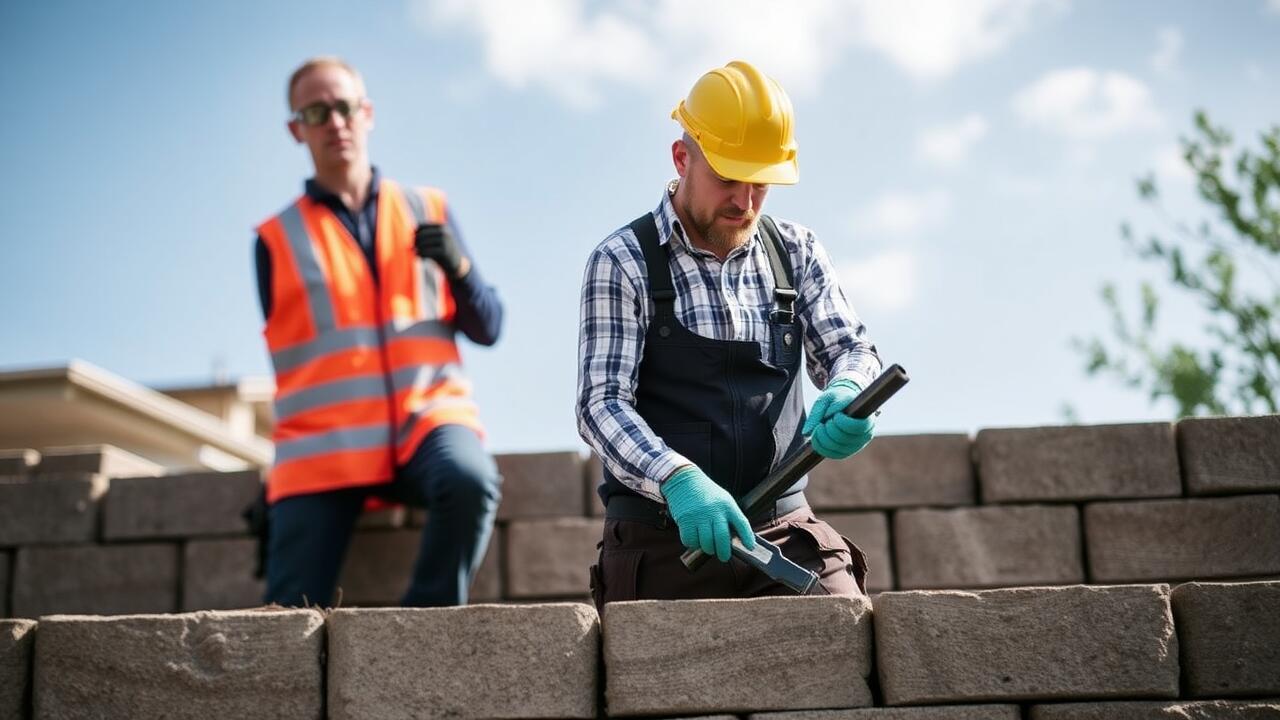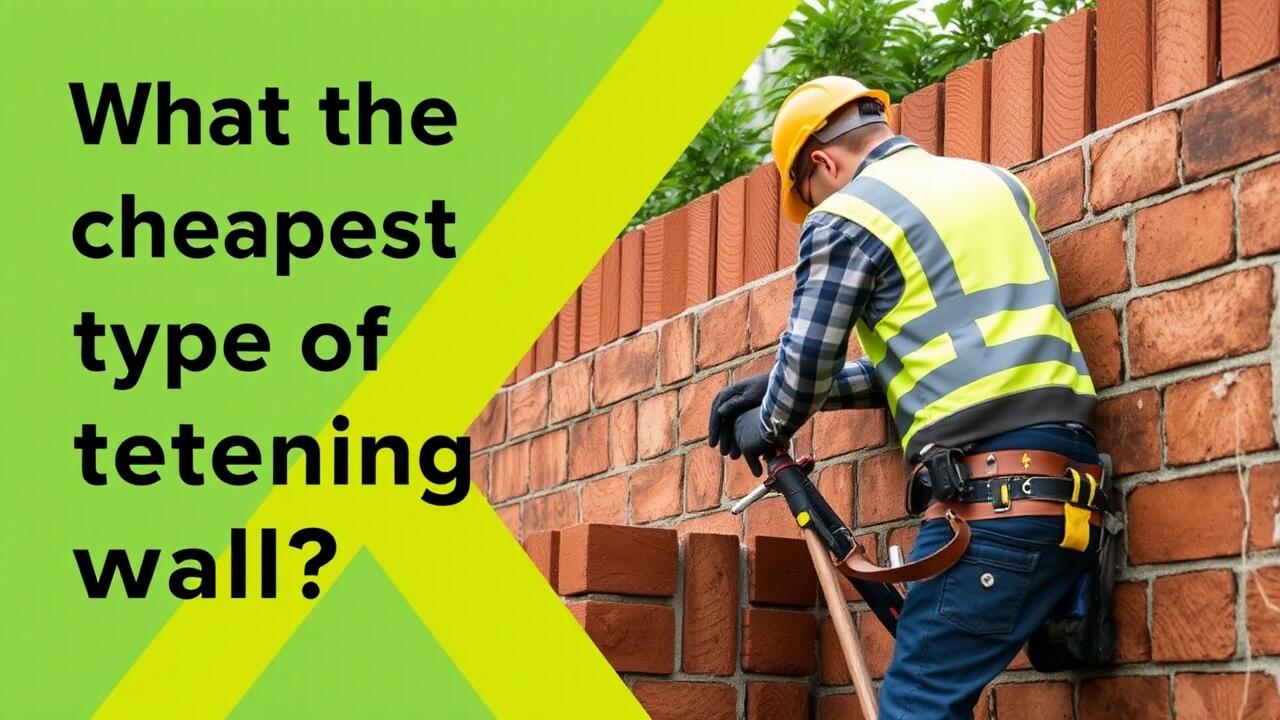
Poured Concrete Walls
Poured concrete walls are often regarded as one of the most cost-effective options for retaining structures. They provide durability and strength, effectively handling soil pressure and water drainage. These walls can be custom-formed to specific heights and lengths, allowing for tailored solutions that fit the unique contours of a property. The installation process tends to be faster than alternatives, reducing labor costs and minimizing disruption to the surrounding landscape.
For those considering Retaining Wall Installation in Camelback East, Phoenix, poured concrete walls offer a practical solution that balances functionality with affordability. The material's resilience means less frequent replacement or repair is necessary compared to other options, contributing to their long-term value. When weighed against other retaining wall types, they often present a more economical choice without sacrificing structural integrity, making them appealing to homeowners and contractors alike.
Comparing Long-Term Costs
When considering long-term costs of retaining walls, it is important to evaluate initial installation expenses alongside ongoing maintenance and potential repairs. Materials such as poured concrete may present a lower upfront cost but can require additional investments in waterproofing and maintenance over time. Comparatively, stone retaining walls often come with a higher initial price but tend to offer greater durability and less frequent upkeep, leading to a better overall value in the long run.
Retaining Wall Installation in Deer Valley, Phoenix, presents options that vary widely in terms of both aesthetics and longevity. While natural alternatives like earthbag walls can be more affordable at the outset and eco-friendly, their lifespan may be shorter, requiring replacement sooner than one might expect. Evaluating these factors can play a crucial role in determining not only the best material for the project but also the most cost-effective solution over the years.
Stone Retaining Walls
Stone retaining walls combine natural beauty with functionality, making them a popular choice for homeowners looking to enhance their landscapes. The aesthetic appeal of stone can complement various architectural styles while providing effective soil support and erosion control. However, the cost of materials and labor for a stone retaining wall can be higher than other options, requiring careful budgeting and planning.
When considering retaining wall installation in Deer Valley, Phoenix, factors such as the type of stone and location can significantly influence overall expenses. Local availability of materials can affect prices, as can the complexity of the installation. While the upfront investment may be substantial, many homeowners value the longevity and durability that stone offers, often viewing it as a worthwhile investment for their property.
Aesthetic Appeal vs. Cost
Stone retaining walls are often praised for their timeless beauty and ability to blend seamlessly with natural landscapes. Homeowners frequently choose them for their aesthetic appeal, considering them a profitable investment in curb appeal. High-quality stone can elevate the overall look of a property, providing both elegance and style. However, the initial cost of materials and labor associated with stone walls tends to be considerably higher than other options, which can lead to a significant impact on a project’s budget.
In contrast, while the aesthetic benefits of stone walls are undeniable, other materials may offer a more economical solution. Retaining Wall Installation in Deer Valley, Phoenix, reveals that options like poured concrete or even earthbag walls not only reduce upfront expenses but can also evoke unique styles that cater to different tastes. Choosing less expensive materials can allow homeowners to allocate their budget toward landscaping or other enhancements that further enrich their property’s appearance, making it essential to weigh the visual benefits against potential costs.
Natural Alternatives
Earthbag walls offer a unique and cost-effective alternative to traditional retaining wall materials. These structures utilize bags filled with soil, stacked and compacted to create a durable and sturdy wall. Their construction generally requires minimal equipment and can often be a DIY project, resulting in lower labor costs and materials expenses. Additionally, the natural materials used can further reduce the overall investment, making them a viable option for budget-conscious homeowners.
When considering retaining wall installation in Estrella, Phoenix, it's essential to take into account local climate and soil conditions, which influence the effectiveness of earthbag walls. These walls provide good drainage properties and are adaptable to various terrains. Choosing natural alternatives like earthbag walls not only saves money but also promotes sustainability through the use of recycled materials and local resources, making them an environmentally responsible choice for retaining walls.
Sustainability and Affordability
Earthbag walls present an innovative solution for those seeking sustainable and cost-effective retaining wall options. Made from natural materials, these structures utilize bags filled with soil, rice hulls, or other earth-based resources. The construction process is straightforward, often requiring minimal transportation of materials. This feature can significantly lower the overall costs compared to traditional retaining walls, making it a viable choice for budget-conscious homeowners and builders.
In Central City, Phoenix, retaining wall installation using earthbag techniques aligns with eco-friendly practices and affordability. Such walls not only provide adequate support for soil retention but also promote environmental sustainability. By opting for local materials and reducing waste, the benefits extend beyond cost savings to include a lower environmental footprint. This approach to retaining walls reflects a growing trend towards more conscientious building practices in urban areas.
FAQS
What is the cheapest type of retaining wall?
The cheapest type of retaining wall often depends on local material costs and labor, but generally, poured concrete walls tend to offer a more affordable option when considering long-term durability and maintenance.
How do stone retaining walls compare in cost?
While stone retaining walls provide excellent aesthetic appeal and durability, they are typically more expensive than poured concrete walls due to material and installation costs.
Are earthbag walls a cost-effective option?
Yes, earthbag walls can be a cost-effective alternative, particularly for DIY projects. They utilize natural materials and are often less expensive than traditional materials, though costs can vary based on location and availability.
What factors influence the long-term costs of retaining walls?
Long-term costs of retaining walls can be influenced by factors such as material durability, maintenance requirements, installation complexity, and potential landscape changes over time.
Which retaining wall option is best for environmentally conscious homeowners?
For environmentally conscious homeowners, earthbag walls are an excellent choice due to their sustainability and use of natural materials, making them an eco-friendly option while also being potentially affordable.
